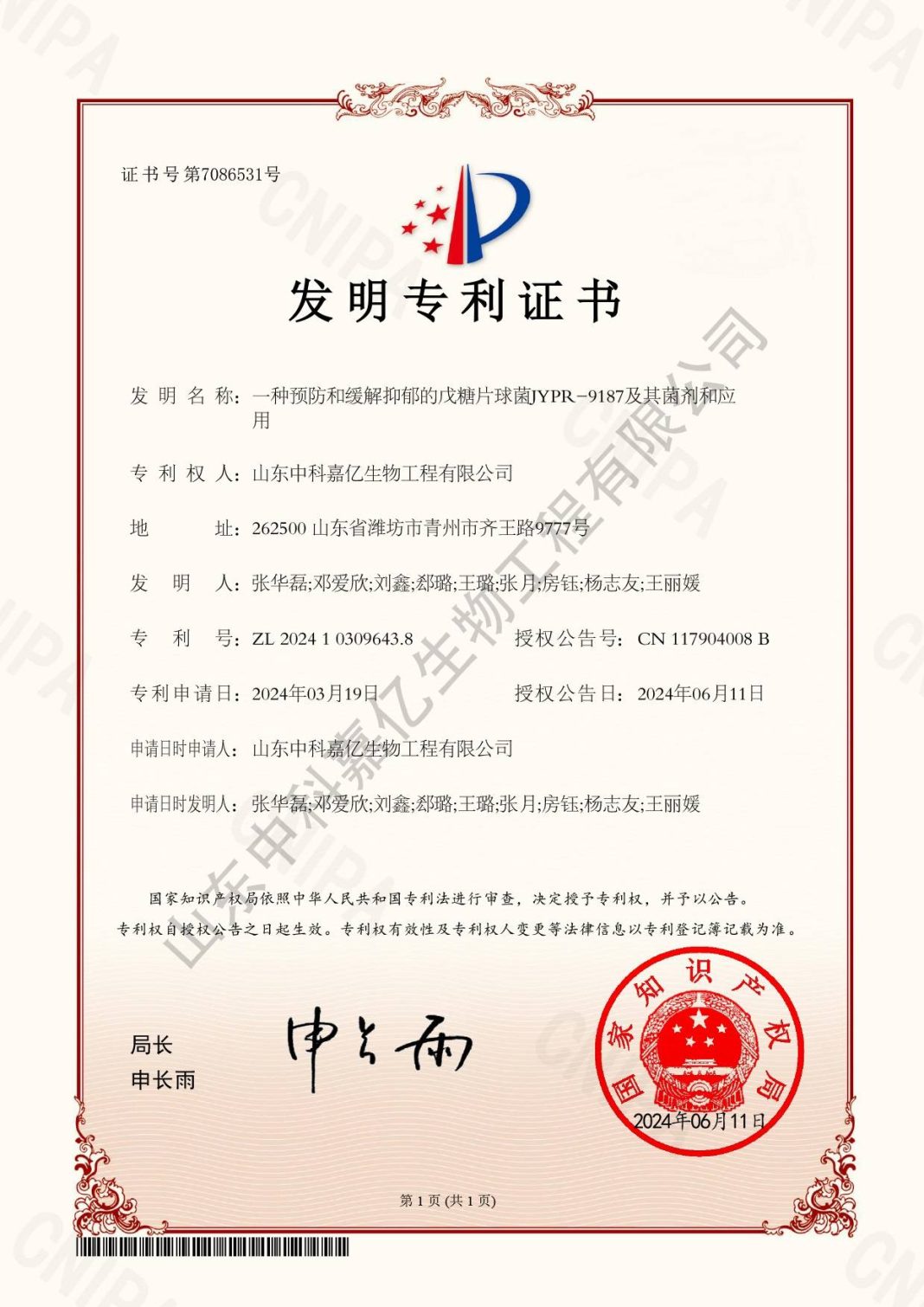Background Technology
· Depression is a typical condition of depressive disorders and is the disease with the highest suicide rate in psychiatry. The etiology and pathogenesis of depression are unclear and may involve various physiological, psychological, and social factors. The prevalence of depression is high; according to WHO (2012), there are approximately 350 million depression patients worldwide, making depression the second most significant disease contributing to a severe burden on humanity globally.
· Treatment for depression mainly includes medication, psychotherapy, and physical therapy. Antidepressants are currently the primary means of treating depressive disorders, with an efficacy rate of about 60% to 70%. However, the incidence of side effects from antidepressants is high, and the treatment duration is generally short, leading to a high recurrence rate of medication treatment. Moreover, long-term medication use can damage the patient’s digestive system and nervous system, and some antidepressants may lead to adaptive changes in the brain, resulting in drug dependence.
· Research has found that probiotics, especially lactobacillus, not only have functions in regulating gut balance and enhancing gut immunity, but also promote the production of neural signaling substances, regulating the secretion of endocrine cell hormones, which helps maintain the normal function of the human nervous system. However, there are currently few reports on probiotics with significant therapeutic effects on depression, and related products still need further development.
· In response to the technical issue that existing probiotic products do not significantly treat depression, this invention provides a strain of pentose saccharomycetes JYPR-9187 and its preparation and application for preventing and alleviating depression.
Functional Strain Animal Experiments
(1) Preventive effects of pentose saccharomycetes JYPR-9187 on depression in mice
· Sugar water preference test: Compared to the control group, the sucrose preference index was significantly reduced in the model group and the JYPR-9187 group (P<0.05), indicating successful modeling of depressed mice; whereas no significant difference in sucrose preference index was observed between the preventive group and the control group, indicating that administration of JYPR-9187 has a certain preventive effect on depression in mice.
· Tail suspension test: Compared to the control group, the immobility time of the model group and the JYPR-9187 group was significantly increased (P<0.05), indicating successful modeling of depressed mice; the immobility time of the preventive group was not significantly different from the control group, indicating that administration of JYPR-9187 has a certain preventive effect on depression in mice.
· Novelty-induced feeding suppression experiment: Compared to the control group, the latency to feed was significantly prolonged in the model group and the JYPR-9187 group (P<0.05), indicating successful modeling of depressed mice; the feeding latency of the preventive group did not differ significantly from that of the control group, indicating that administration of JYPR-9187 has a certain preventive effect on depression in mice.
(2) Effect of pentose saccharomycetes JYPR-9187 on the body weight of depressed mice
The weight of mice in the model group and the JYPR-9187 group showed a significant difference (P<0.05), while the weight of mice in the JYPR-9187 group did not differ significantly from the control group, indicating that JYPR-9187 can significantly improve the symptoms of weight loss in depressed mice, thus suggesting that JYPR-9187 has a certain alleviating effect on depression in mice.
(3) Effect of pentose saccharomycetes JYPR-9187 on the expression levels of NOD-like receptor protein 3 (NLRP3), apoptosis-associated speck-like protein (ASC), caspase-1, and nuclear transcription factor NF-κBp65 in the hippocampal tissue of mice
Compared to the control group, the expression levels of NLRP3, ASC, caspase-1, and NF-κBp65 proteins in the hippocampus of mice in the model group were significantly increased (P<0.05). The expression levels of NLRP3, ASC, caspase-1, and NF-κBp65 proteins in the JYPR-9187 group were significantly higher than those in the model group, with no significant difference from the control group. It can be seen that JYPR-9187 inhibits the expression of neuroinflammation-related proteins in the hippocampal tissue of mice, resulting in a certain alleviating effect on depression in mice.
(4) Effect of pentose saccharomycetes JYPR-9187 on the concentrations of pro-inflammatory cytokines IL-1, IL-6, and TNF-α in the serum of depressed mice
Compared to the control group, the concentrations of IL-1 in the serum of mice in the model group


